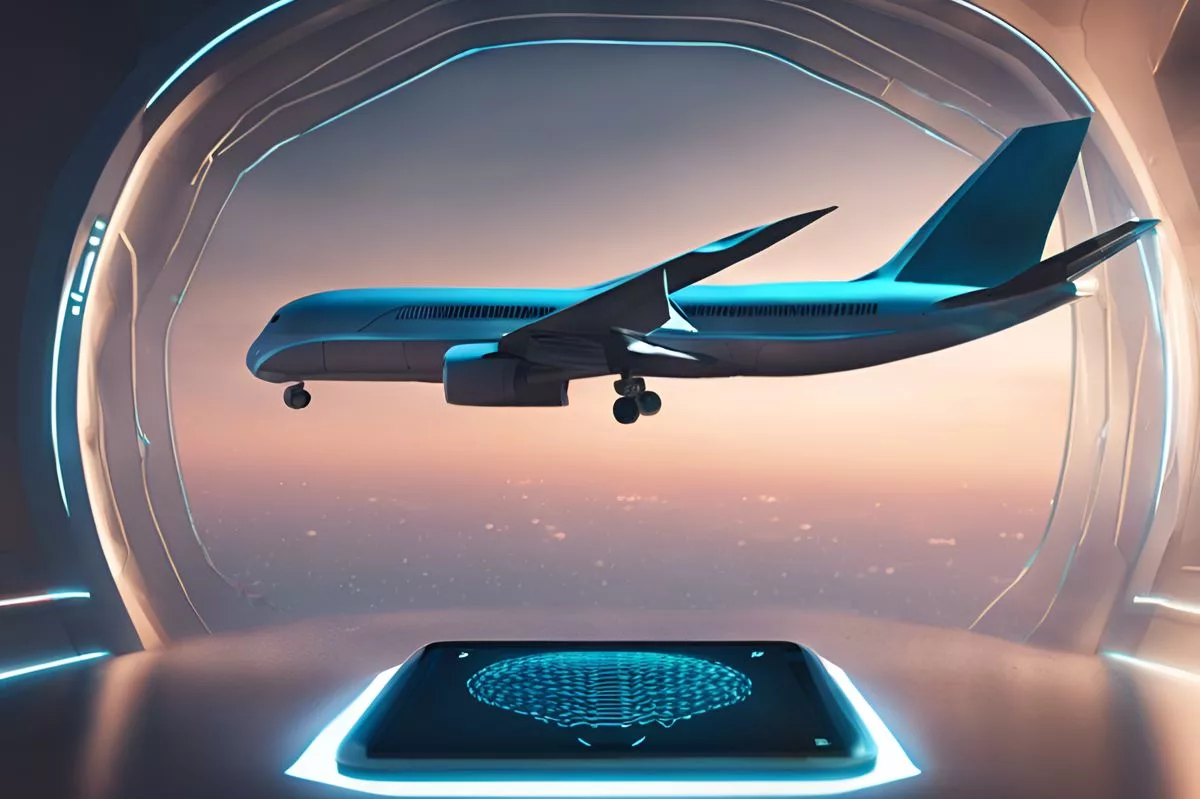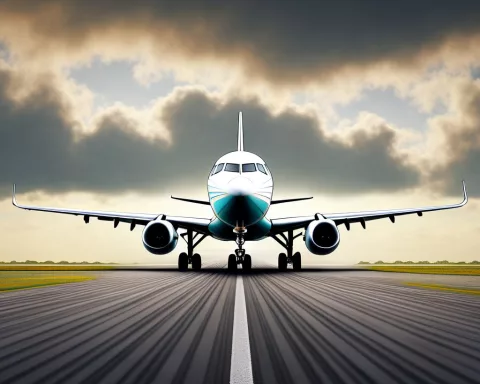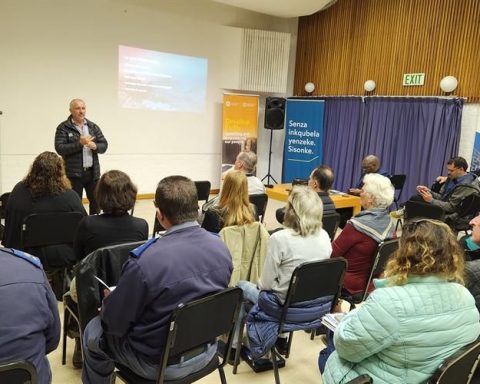Airports Company South Africa (Acsa) is revolutionizing the country’s aviation industry with its cutting-edge biometric and digital identity technology. The incorporation of facial recognition technology and OneID will lead to faster immigration processing times and a hassle-free experience for passengers. Acsa plans to implement robotics and AI to augment self-service functions and cater to food and beverage services and retail. With their groundbreaking projects and collaborations, Acsa is set to establish a standard for airports worldwide, promising a more advanced and efficient airport experience for South Africans.
The Revolution in South African Air Travel
Discover how Airports Company South Africa (Acsa) is utilizing cutting-edge biometric and digital identity technology to elevate efficiency and strengthen security measures at the nation’s airports. This game-changing endeavor, anticipated to take off by 2026, aims to cut down immigration processing times and ensure passengers enjoy a fluid, hassle-free experience. With the incorporation of facial recognition technology into their border control systems and the introduction of OneID, Acsa is revolutionizing the airport journey for travelers.
The Revolution in South African Air Travel
A new epoch is on the brink of emerging in the South African aviation arena. The Airports Company South Africa (Acsa) is primed to transform the landscape of the country’s airports through their cutting-edge biometric scheme. This game-changing endeavor is anticipated to take off by the latest in 2026, vowing to remake the airport journey for the people of the nation.
Acsa, as a precursor to the upcoming changes, has already commenced implementing its biometric and digital identity technology across South Africa’s airports. This tech innovation is not merely another achievement for them; it forms an integral part of a carefully staggered strategy aimed at elevating efficiency and strengthening security measures at the nation’s airports.
The linchpin of this revolutionary venture is facial recognition tech, which Acsa is planning to use. However, the goals of this project aren’t limited to just ramping up security. By incorporating this technology into their border control systems, Acsa is striving to cut down immigration processing times and ensure passengers enjoy a fluid, hassle-free experience.
Overcoming Obstacles and Implementing New Features
Naturally, the road to such innovation is often riddled with obstacles. The preliminary pilot project fell short of the anticipated success due to passenger apprehension and unfamiliarity with the new technology. Undeterred, Acsa has plans to overcome this snag with extensive passenger education.
The changes don’t stop there. Acsa is also set to introduce “OneID”, a distinct passenger identifier produced by self-registration on the Acsa app. Backed by facial recognition tech, OneID will automate procedures from baggage drop-off to immigration checks and boarding. By doing away with the need for physical documents at various checkpoints, it offers to reinvent the airport journey for travelers.
In 2020, Acsa recognized a need for a complete revamp of their operational procedures. This realization led them to explore the possibilities of robotics, establishing it as a central strategic focus for the company.
Utilizing AI and Robotics for Enhanced Functionality
Mthokozisi Mncwabe, Acsa’s Chief Information Officer, unveiled an impressive array of initiatives currently in the pipeline. These initiatives are targeted at tapping into the potential of AI and robotics to augment self-service functionalities at Acsa airports.
In sync with the globally escalating use of robots, Acsa plans to implement this technology to cater to food and beverage services and retail. Mncwabe believes that such innovations will not only elevate the customer experience but will also bring South African airports in line with international standards.
Alongside this, Acsa is also joining forces with technological powerhouse Microsoft. This partnership has the goal of leveraging tech to craft a personalized customer experience. By understanding their customers better, Acsa seeks to customize their services to cater to individual needs more efficiently.
A Promise of a Better Future
The prospects for South African airports are bright, with Acsa steering the innovation and customer satisfaction sectors. As the aviation industry continues to progress, South Africans can anticipate a more user-friendly, efficient, and secure airport journey.
In conclusion, Acsa’s groundbreaking projects and collaborations spell out a promising outcome for South African aviation. With technology at the forefront of their strategy, they are sure to set a standard for airports worldwide. This vision of a more advanced and efficient airport experience is sure to make air travel more appealing to South Africans, marking a significant stride in the country’s aviation history.
1. What is Airports Company South Africa (Acsa) doing to revolutionize the country’s aviation industry?
Acsa is utilizing cutting-edge biometric and digital identity technology, including facial recognition technology and OneID, to elevate efficiency and strengthen security measures at the nation’s airports.
2. When is the game-changing endeavor expected to take off?
The game-changing endeavor is anticipated to take off by the latest in 2026.
3. What is the linchpin of this revolutionary venture?
The linchpin of this revolutionary venture is facial recognition tech, which Acsa is planning to use to cut down immigration processing times and ensure passengers enjoy a fluid, hassle-free experience.
4. What is OneID?
OneID is a distinct passenger identifier produced by self-registration on the Acsa app, backed by facial recognition tech, that will automate procedures from baggage drop-off to immigration checks and boarding.
5. What is Acsa planning to do with robotics and AI?
Acsa plans to implement robotics and AI to augment self-service functions and cater to food and beverage services and retail, with the goal of elevating the customer experience and bringing South African airports in line with international standards.
6. What is the goal of Acsa’s partnership with Microsoft?
Acsa’s partnership with Microsoft has the goal of leveraging tech to craft a personalized customer experience, understanding their customers better, and customizing their services to cater to individual needs more efficiently.












